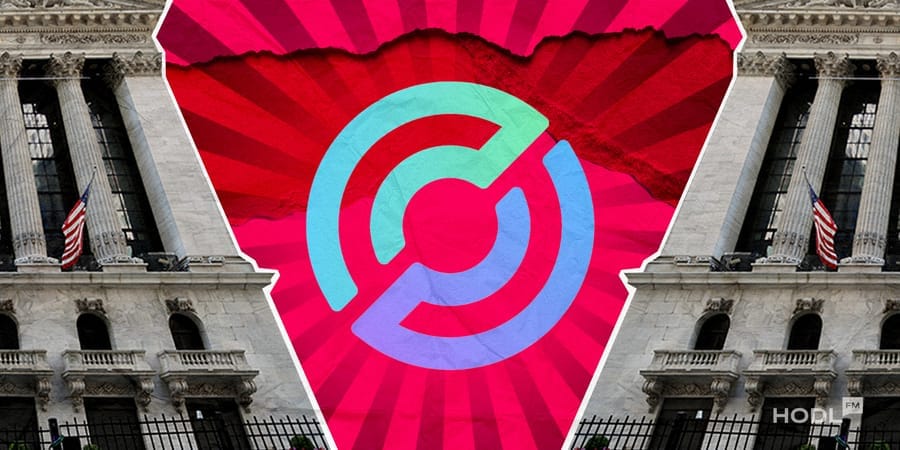Japan’s Financial Services Agency (FSA) is preparing to introduce stricter oversight of companies that provide custody and trading management systems for crypto assets, aiming to close regulatory gaps exposed by recent high-profile hacking incidents. The move follows Japan's established pattern of building a secure, transparent, and innovative environment for digital finance.
FSA considers new registration and notification system
According to a report from Nikkei, the FSA is considering a new system that would require digital asset custodians and management service providers to notify and register with authorities before offering their services to crypto exchanges. The proposal was discussed on November 7 during a meeting of a working group under the Financial System Council, an advisory body to the Japanese Prime Minister.
Currently, crypto exchanges operating in Japan are required to maintain strict management systems, such as storing customer funds in offline cold wallets, to prevent unauthorized access and theft. However, no similar requirements exist for third-party vendors that provide system management and custody solutions. This regulatory blind spot has become a growing concern as exchanges increasingly rely on outside partners for operational infrastructure.
Under the proposed system, only technology and management systems developed by registered custodians would be allowed for use by crypto exchanges. The goal of the measure is to make sure that all organisations that deal with user assets have strong cybersecurity measures in place and follow the rules set by regulators.
Lessons learned from the DMM Bitcoin hack
The urgency behind this initiative stems from the massive DMM Bitcoin hacking incident in 2024, where approximately 48.2 billion yen (about $312 million) worth of bitcoin was stolen. Investigations later revealed that the entry point for the attack was Tokyo-based software company Ginco, which DMM Bitcoin had hired to manage its trading systems.
The Nikkei report noted that the loophole allowed malicious actors to exploit vulnerabilities in external vendors’ systems that were not subject to the same scrutiny as licensed exchanges. In response, members of the FSA working group agreed on the need for more comprehensive oversight. Some participants noted that “in the case of outsourcing, there are limits to the accountability of exchange companies, and that it is necessary to clarify what additional measures should be taken.”
Most of the working group supported the proposal and called for clear guidelines to strengthen Japan’s digital asset management framework. The FSA plans to compile a report summarizing the committee’s discussions and will aim to submit amendments to the Financial Instruments and Exchange Act during the 2026 ordinary Diet session.
Strengthening trust while advancing stablecoin innovation
Japan’s efforts to tighten crypto regulations come even as it leads Asia in launching compliant digital asset infrastructure. Last month, the FSA approved JPYC, the country’s first fully yen-pegged stablecoin, marking an important milestone in Japan’s digital finance ecosystem.
JPYC is backed by Japanese bank deposits and government bonds, allowing it to maintain full redemption at par value. Unlike many regional counterparts, it can circulate globally thanks to Japan’s liberalized capital markets. The issuer of JPYC does not charge transaction fees but instead generates revenue from interest earned on its holdings of Japanese government bonds, ensuring sustainable operations without speculative risks.
Japan has also supported a broader stablecoin pilot involving the country’s three major banks, Mizuho Bank, MUFG, and SMBC, reflecting the government’s commitment to integrating blockchain with the traditional financial system. This initiative aims to explore cross-border settlement efficiency and the potential for on-chain foreign exchange markets, where regulated stablecoins could facilitate yen- and dollar-denominated liquidity in real time.
Balancing innovation with accountability
Japan wants to find a balance between safety and progress, and the FSA's approach of tightening oversight on important crypto infrastructure while supporting stablecoin innovation shows this. Global markets have seen multiple examples where insecure systems led to large-scale digital asset losses, eroding investor confidence.
By requiring registration of custodians and management system providers, the FSA aims to create a unified regulatory perimeter that leaves little room for security lapses. Meanwhile, by promoting regulated, yield-backed stablecoins such as JPYC, Japan hopes to build a globally connected digital economy.
With the proposed framework expected to take shape over the next two years, Japan continues to position itself as a regulatory leader in digital finance, an example of how innovation and investor protection can coexist in the rapidly evolving crypto ecosystem.

Disclaimer: All materials on this site are for informational purposes only. None of the material should be interpreted as investment advice. Please note that despite the nature of much of the material created and hosted on this website, HODL FM is not a financial reference resource, and the opinions of authors and other contributors are their own and should not be taken as financial advice. If you require advice. HODL FM strongly recommends contacting a qualified industry professional.





